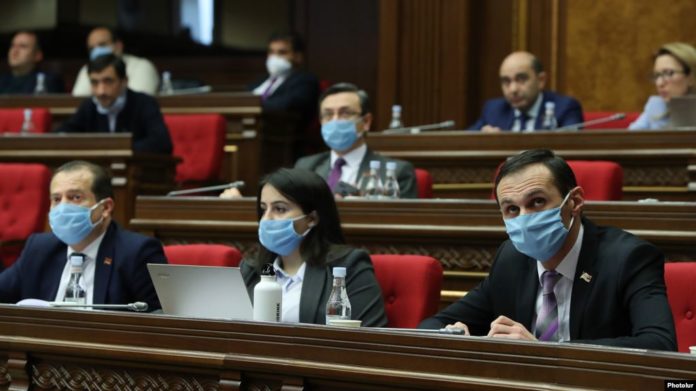By Ani Mejlumyan
YEREVAN (Eurasia.net) – Parliament has given Armenia’s government broad authority to track residents’ whereabouts and contacts through their telephones as a measure to slow down the spread of the novel coronavirus.
The Ministry of Justice presented a draft law on March 30 that would allow the government to collect cell phone users’ data including the location, the numbers they called and when the calls were made.
“Detecting phone calls of an infected person over the previous 14 days by matching it up with location data would be very helpful in the fight” against the virus, Justice Minister Rustam Badasyan wrote in a Facebook post. Armenia has been the hardest-hit country in the region by coronavirus, registering 532 cases as of March 31.
To the surprise of many observers, the bill failed on its second reading on March 31, getting only 65 of the 67 votes it needed for passage. Only members of the majority My Step coalition voted for it, and several members were not able to attend as they were observing the elections in next-door Nagorno-Karabakh.
But the government and My Step regrouped quickly.








